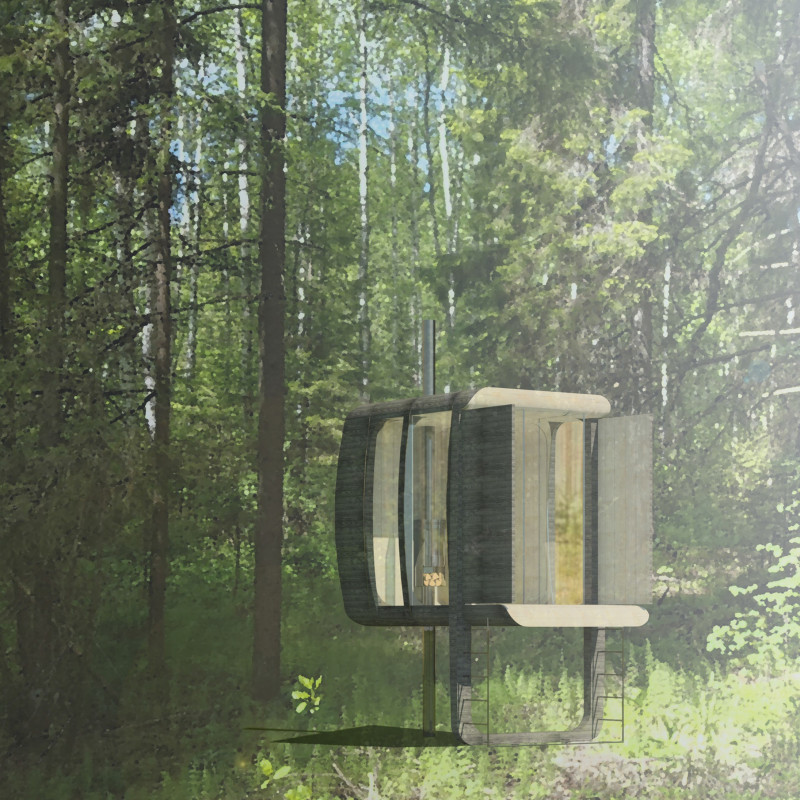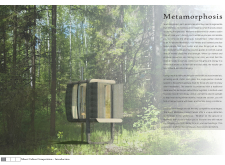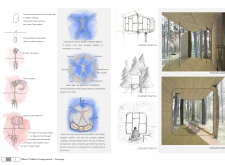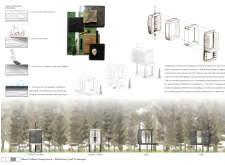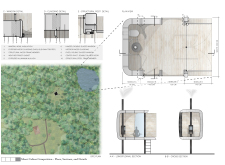5 key facts about this project
Silent Cabins are designed as individual retreats for meditation, focusing on the themes of isolation and self-reflection. Set in a natural environment, these cabins aim to create a space where people can step away from daily distractions and rediscover themselves. The design is influenced by Vipassana meditation principles, offering a sanctuary that encourages deep thought and personal growth. Each cabin accommodates one person, allowing for flexible placement that can either blend into the landscape or be elevated above it.
Materiality
Sustainability plays a crucial role in the material choices. Wood is the main material used in construction, valued for its warmth and natural look. The exterior is treated with Shou Sugi Ban, a traditional Japanese method that involves charring the wood's surface. This process helps protect the wood from decay and weather effects, while also enhancing its visual appeal and thermal properties during colder months.
Spatial Organization
Inside, spaces are carefully arranged to prioritize comfort and simplicity. Areas for hygiene, warmth, and food are grouped together, creating a functional space that feels safe and inviting. This layout transforms the cabin into a protective shell, allowing occupants to feel secure while also encouraging moments of quiet contemplation.
Modularity and Customization
The design's modularity allows for personal adjustments, making each cabin adaptable to individual preferences. This customization enhances the solitude experience, allowing occupants to connect more deeply with their surroundings. The ability to modify the space creates a more intimate retreat that meets the specific needs of each user.
The relationship between the cabins and their natural setting is evident in the design, promoting a thoughtful interaction with the environment. Large operable windows on one side open up to the forest, providing light and beautiful views. This feature not only brightens the interior but also strengthens the connection between the cabin and nature, enhancing the overall meditative effect.


